Fortress Australia: Arguments for and against re-opening our borders after vaccine rollout
Should Australia open its international border when the vaccine roll out is complete? Here is the case to rejoin the world, versus the argument against. VOTE IN OUR POLL
National
Don't miss out on the headlines from National. Followed categories will be added to My News.
Should Australia open its international border when the vaccine roll out is complete?
Here is the case to rejoin the world, versus the argument against.
FOR - JAMES CAMPBELL
It seems like an eternity ago, but when the COVID-19 pandemic began last year, all the restrictions – including border closures – were justified on the basis that we needed to suppress the virus to prevent our hospital system being overwhelmed.
As we now know of course, Australia suppressed it so hard that we became one of only a hatful of countries to have effectively eliminated the virus.
Although Governments never admitted they had switched from suppression to elimination, in reality the plan was to sit tight inside a virus-free Fortress Australia until the vaccines arrived.
The good news is it worked. With the exception of last winter’s lockdown in Victoria and the irritation of state border closures, life here has continued more-or-less as normal.
Which is great: by world standards hardly anyone has died in Australia and our economy has suffered a fraction of the damage endured by other countries.
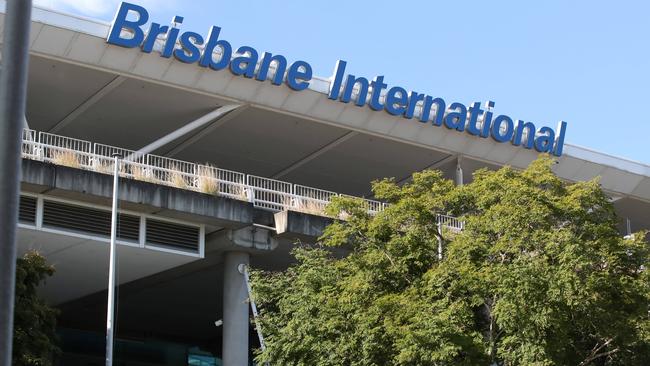
The bad news is our success at eliminating the virus has made us scared of reopening the international borders and letting the virus back in.
The economic costs and the emotional distress of keeping the borders shut are obvious: no tourists, no migrants, no international students, no chance to see friends and families overseas.
Yet according to polls Australia’s overwhelmingly support the current regime continuing.
The longer this goes on the more insular Australia will become.
It doesn’t have to be this way. Miraculously, in record time, modern science has produced a raft of vaccines which are effective at stopping death and serious illness from COVID-19.
Yet bizarrely, Newspoll says only 20 per cent of Australians believe borders should be reopened as soon as all those who want to a vaccine have had a chance to get one.
So why the hesitation? The most reasonable argument is that although we know vaccines are excellent at stopping death and serious illness we don’t yet know how good they are stopping transmission of the coronavirus.
If they’re no good at stopping the spread of the virus then we still need to keep the borders shut, the argument goes, because people who haven’t been vaccinated could still catch it and die.
There are also concerns about the welfare of people who either can’t be vaccinated – which at the moment includes all children – or for whom it didn’t work.
Luckily the evidence is mounting up that not only are vaccines very good at stopping people dying they are also good at stopping transmission.
In April a study from Public Health England found a single vaccine dose reduced household transmission by up to half.
The finding was just the latest addition to a pile of research which all shows the same thing: vaccines stop spread.
The largest studies so far come from Israel which has one of the highest vaccination rates in the world.
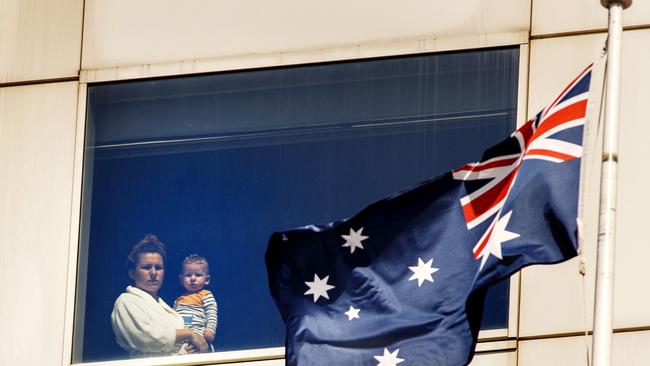
Israel’s Ministry of Health reckons vaccination has cut the asymptomatic rate of infection – ie people infected who don’t present as ill – by its staff by 94 per cent.
At 90 per cent the drop among the general population is almost as impressive.
Data from Israel also shows that vaccination has a big impact on the rate of infection among kids who cannot yet be vaccinated.
Of course even if it turns out that vaccines are as good at cutting spread as early data suggests they might be, there will still be some people who get very sick from COVID-19, some of whom will end up being hospitalised or even dying.
But the news is good on this front too.
In the year and half since the first cases were reported in China, your chances of dying from COVID-19 have fallen in the countries like Australia that have First World hospital systems.
This began to happen within months of the start of the pandemic.
According to a study last month in the Lancet the death rate during the UK’s first wave between March and July last year halved from 32 per cent to 16 as doctors learn more about how to treat it.
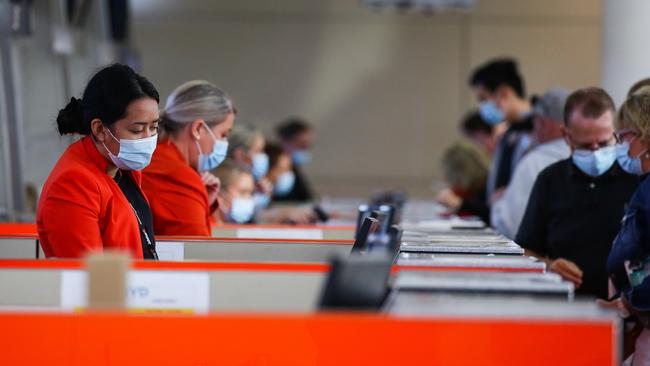
Since then things have only improved. Just this week a study found a COVID-19 monoclonal antibodies treatment significantly mitigated the risk of hospitalisation and death from the disease by 60 per cent.
To go back to where we began, the closure of our borders was initially part of a suppression strategy to prevent our hospital system from becoming overwhelmed.
Between vaccines and improved treatments, the chances of this now happening is a fraction of what it was last March.
As soon as everyone who wants a vaccine has been given the opportunity to get one, we need to re-open the borders.
AGAINST - LUCY CARNE
‘HERMIT kingdom’, ‘gilded cage’, ‘fortress Australia’ – it’s easy to ridicule the robust governance that has kept our continent protected from a pandemic. But this double-sided blessing has perhaps blinded many to the devastating reality of COVID-19. This can only explain the vocal minority (with obvious vested interests) agitating for our international borders to reopen.
Virgin Australia CEO Jayne Hrdlicka argued in a speech on Monday in Brisbane that reopening borders “will make us sick but won’t put us into hospital,” adding, “some people may die but it will be way smaller than the flu.”
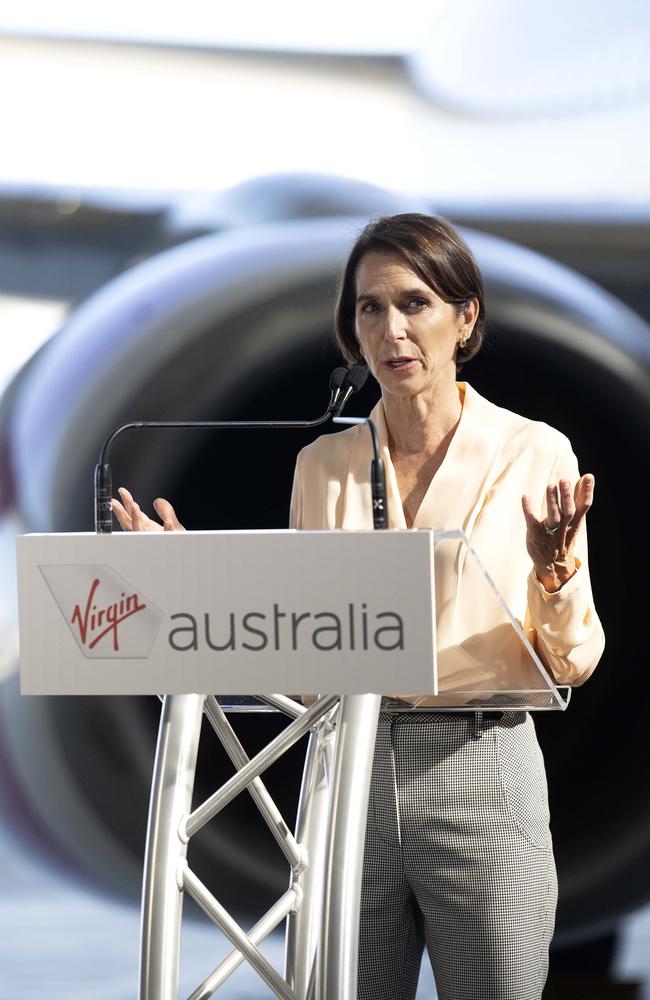
Beyond the flippant insensitivity of an airline boss peddling a Darwinian choice of profit over lives, it needs to be made clear that COVID-19 is not the flu.
The World Health Organization estimates that 290,000 to 650,000 people die of flu-related causes annually.
More than 3 million people died from COVID-19 in the past 12 months, notably within the context of closed borders, lockdowns and social distancing.
The rest of the world is opening up leaving us behind, others claim, as though everyone else is suddenly holidaying in Bali and hiring French au pairs, while we’re locked in our antipodean jail cell. But this is also a false narrative. A vaccinated community is not guaranteed safe from future outbreaks.
Just look at the Seychelles. It is the most vaccinated nation on earth (above even Israel and the UK) and COVID-19 is tearing through it.
Around 62 per cent of the archipelago population off the east coast of Africa has been fully vaccinated since January, with 43 per cent receiving the AstraZeneca jab. But the nation of 100,000 people was last week recording 400 new COVID cases daily, including 37 per cent of new infections and 20 per cent of hospitalisations among people who were fully vaccinated.
Australia should be in no rush to reopen international borders, even if the nation manages to reach herd immunity via vaccinations.
At the risk of being reductive, we don’t have the population to spare. Low fertility and high life expectancy has made Australia an ageing nation. One in seven Aussies are now over 65. Why put at risk the Baby Boomer generation, along with First Nations and disabled people, to this killer disease just so travel companies can turn a profit?
Also, millions of people worldwide are still suffering from debilitating recurring symptoms months after being infected, including brain fog, fatigue, hair loss, hearing complications and nerve and organ damage. It’s estimated at least 1.1 million people, including children, in the UK are suffering from Long COVID, with 80 per cent of people saying it affected their ability to work.
Our international borders will remain largely closed until mid-2022, according to federal budget papers. Cynics claim it’s a political ploy by Prime Minister Scott Morrison to cement popularity ahead of the next election. But it’s also what most Australians want.
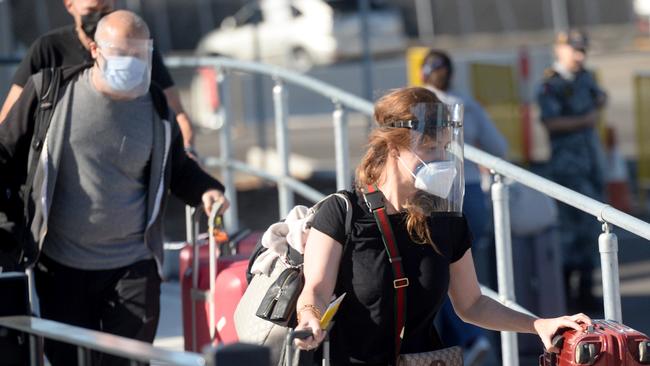
The latest Newspoll in The Australian revealed 73 per cent of respondents want borders to remain closed until mid-next year. Most Australians (95 per cent) also believe Australia has handled COVID-19 ‘very well’ or ‘fairly well’, according to the Lowy Institute.
Perhaps the arrogance behind the demand to open our borders comes from our lack of truly understanding how traumatic it is to live alongside COVID. We have not lost neighbours and relatives. We have not, as a friend in London recently did, had to tell our kids that two teachers (both aged in their 40s) at their primary school died during lockdown.
We have not begged nurses to wish our loved one a final farewell over Skype.
This is not to advocate to keep Australia’s borders closed forever, but we are operating amid profound uncertainty.
With the constant threat of new variants, no one knows what open borders will mean in six months. Our cautious response at the start of this pandemic needs to be matched with a wary exit. We must be in no rush to fling open the doors of our gilded cage.




